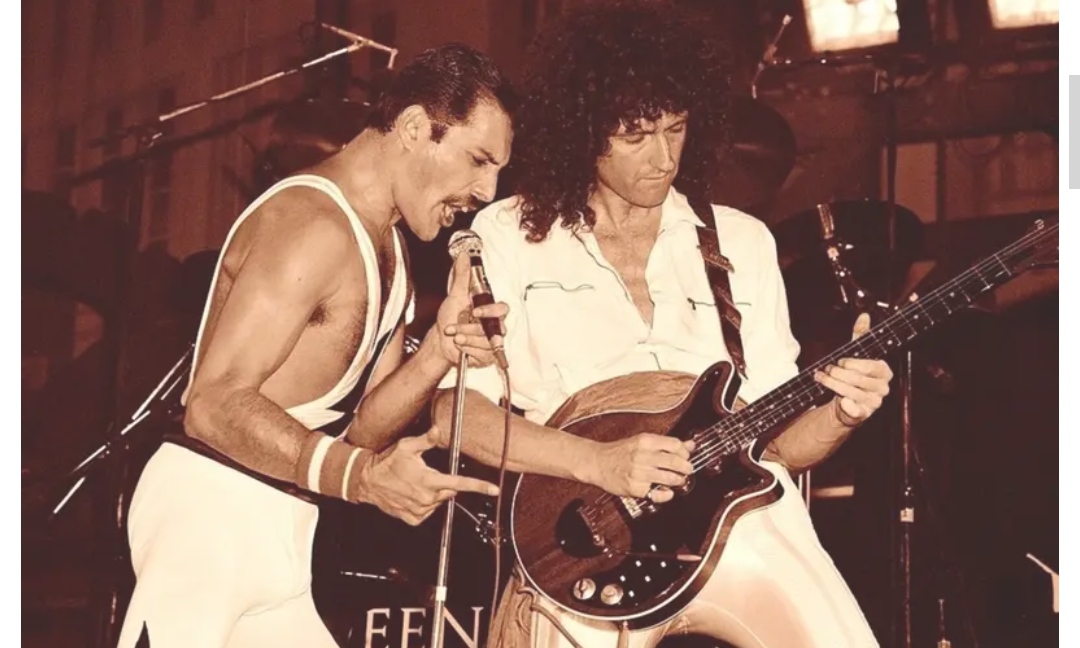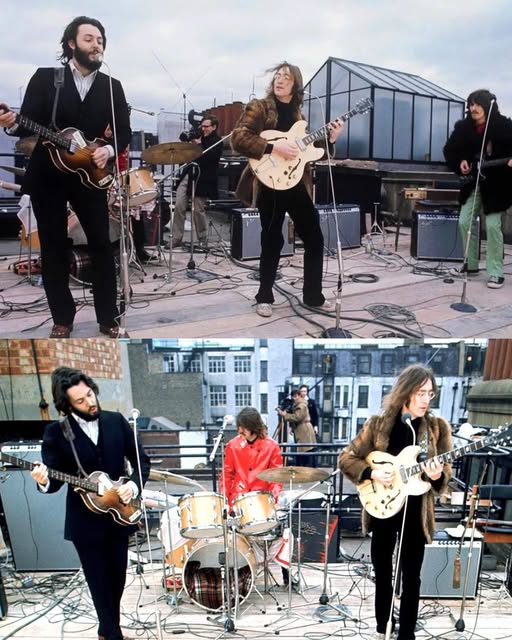Just when the world expected Freddie Mercury to give in, he walked into the studio with an unbreakable resolve. In 1990, barely able to stand, he faced Queen’s ultimate challenge: “The Show Must Go On” — a final anthem demanding impossibly high notes. With a vodka in hand and a fierce spirit, he growled, “I’ll f*ing do it, darling.”** And in that moment, a legend was born.
By 1990, Freddie Mercury’s health was failing—but his voice, his passion, and his fight remained as fierce as ever.
The public had no idea just how sick he really was. Behind the scenes, however, Queen’s legendary frontman was quietly battling the devastating effects of AIDS. His movements were slower, his frame thinner—but there was one thing the illness couldn’t take from him: the fire inside.
“The Show Must Go On” – A Song Written in Shadows and Strength
At the time, Queen was crafting what would later be hailed as one of their most iconic and emotional songs—“The Show Must Go On.”
Penned primarily by Brian May, the lyrics were a raw and honest reflection of Freddie’s hidden battle: the pain behind the glamor, the strength beneath the silence, the will to keep going even when everything screamed “stop.”
But this wasn’t just another track. It demanded soaring notes, deep emotion, and absolute power—a tall order for even the healthiest vocalist. And Brian was worried.
I told Freddie, ‘These notes are brutal. You don’t have to push yourself,’” May later recalled. “They’re tough—even for you.”
“I’ll F***ing Do It, Darling.”
Freddie didn’t hesitate.
He calmly poured himself a vodka, met Brian’s eyes, and said with unwavering conviction:
“I’ll f*ing do it, darling.”**
Despite being physically weak and visibly drained, Freddie walked into the studio booth. No stage, no spotlight—just a man holding himself upright against the mixing desk, digging deeper than ever before.

And Then… He Sang.
What followed was nothing short of miraculous.
Freddie didn’t just sing the song. He conquered it.
Every note rang with defiance, every lyric bled with truth. When he belted out “On with the show,” it wasn’t just a phrase—it was his personal battle cry. A vow to finish strong.
The studio fell silent.
Those present knew they had witnessed something more than music—it was history. It was art. It was soul.
A Farewell in Full Voice
Freddie Mercury poured every ounce of what he had left into that performance. It wasn’t just a recording—it was his final roar.
“The Show Must Go On” would go on to become one of Queen’s most beloved songs, a universal anthem of courage in the face of despair.
Even today, decades later, that vocal hits just as hard. You can hear the pain. You can feel the resilience. You can sense the soul of a man who refused to go quietly.
Freddie Mercury Didn’t Just Leave a Song… He Left a Legacy
In the end, Freddie wasn’t just singing.
He was writing his own goodbye.
And he made sure it echoed—loud, proud, and unforgettable.


